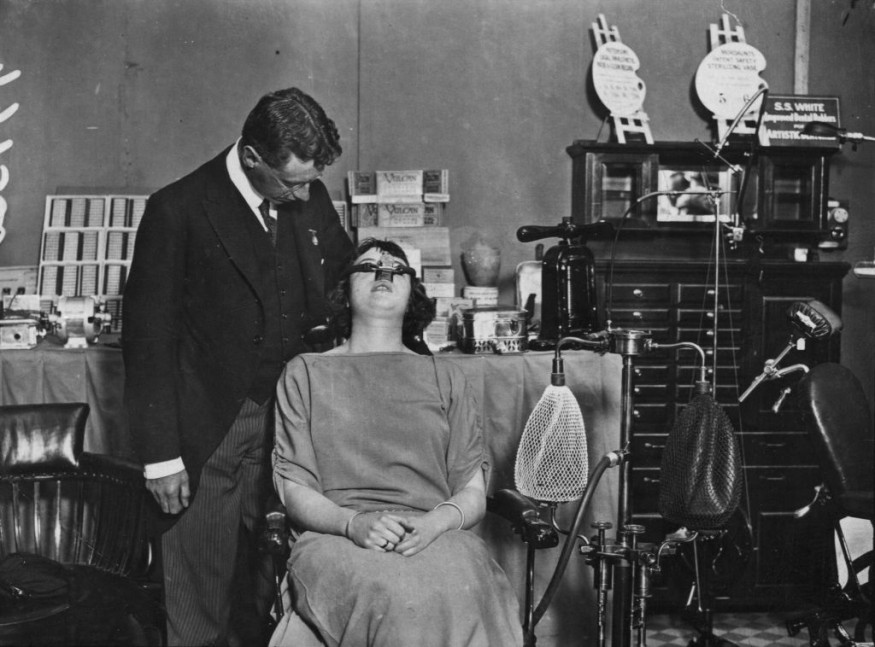Nitrous oxide, also known as "laughing gas," has now joined the ranks of effective post-traumatic stress disorder treatments, according to new research.
A new trial involving 24 participants in the United States has found that a low dose of the gas can relieve symptoms of depression otherwise resistant to current drug treatments.
A ScienceAlert article reported that psychoactive drugs, historically taken at parties, are increasingly appearing to be appropriate tools for the treatment of mental illness.
In phase III trials, the party drug Ecstasy has been found to be a highly effective cure for Post Traumatic Stress Disorder or PTSD. And in recent research, oral ketamine, as explained in the Drug Fact Sheet of the Department of Justice/Drug Enforcement Administration, has been found to substantially lessen suicidal tendency.
As with "laughing gas," the benefits seem to last for several weeks, although they come with quite a few side effects.
According to Peter Nagele, a trauma anesthesiologist at the University of Chicago, the reduced side effect was unexpected and very drastic, although even more excitingly, the effects following a single administration lasted for two whole weeks.

A Never-Been-Shown-Before 'Cool' Finding
The trauma anesthesiologist said that this is a "never-been-shown-before" finding. When "laughing gas" or nitrous oxide was originally discovered in the late 1700s, chemists in England held laughing gas parties for an elite crowd.
The events were reportedly marketed as "experiments" during that time to find out how the drug actually worked.
Partygoers reported they felt euphoric and pain-free, the reason nitrous oxide was soon modified for use in both surgery and dentistry. Centuries later, most people now know the drug as a sedative or anesthetic.
During the past couple of years, researchers have been re-investigating this drug, including its use in clinical settings.
Drop-in Depression Cases
A proof-of-principle study published in the National Library of Medicine in 2015 found that inhaling gas comprised of 50 percent nitrous oxide for only an hour had antidepressant effects.
The study showed a substantial drop in depression the day after treatment for most participants, among the volunteers whose moods were checked a week after, although the effects didn't seem to last.
While no serious adverse effects had been observed, a lot of the volunteers said they felt nauseous, paranoid or light-headed.
Nonetheless, a new follow-up study suggests this does not have to be the case. In phase II clinical trial recently conducted, about 24 participants with treatment-resistant major depression were assigned randomly three different treatments staggered across the three-month period, with one month in-between treatments.
The study, "A phase 2 trial of inhaled nitrous oxide for treatment-resistant major depression", is published in the Science Translational Medicine.
Lasting Benefits
Two weeks after every treatment, researchers found those who had been provided with laughing gas at either dosage exhibited lasting benefits compared to the time they were given a placebo.
The higher laughing gas dose was linked to four times more side effects, on average. A lower dose treatment put most participants to sleep.
The study, Nagele explained, was motivated by observations from studies on ketamine and depression. Ketamine, like nitrous oxide, is an anesthetic, and there has been promising work through the use of ketamine at a sub-anesthetic dose for the treatment of depression.
Nagele wondered if the past concentration of 50 percent had been extremely high. By decreasing the dose, the "Goldilocks spot" that would maximize clinical advantage and minimize adverse side effects might be found, Nagele thought.
The sample size, however, is small, and since the researchers only followed up with participants after two weeks, it remains unclear if the effects of the laughing gas treatment carried over into the next bout of nitrous gas.
This could bolster the lasting effects of the drug. Meaning, multiple doses of this treatment might be beneficial as a longer-term therapy.
Related information about "laughing gas" is shown on the Atlanta Dental Spa's YouTube video below:
RELATED ARTICLE : Bringing 'Positive Psychology' Into the Workplace
Check out more news and information on Psychology in Science Times.












